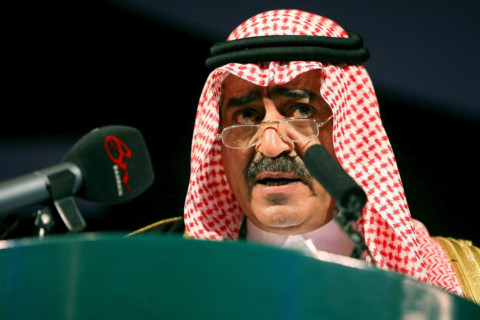
Beirut: Just when analysts insisted that major disputes polarised Al Saud ruling family, King Abdullah Bin Abdul Aziz appointed a younger brother, Prince Muqrin Bin Abdul Aziz, to the position of second deputy prime minister that, for all practical purposes, ensured an eventual smooth succession.
Critics observed that recent dramatic changes, the deaths of princes Sultan and Nayef, the appointment of Prince Salman as crown prince, the elevation of Prince Mohammad Bin Nayef to the ministry of interior, as well as the most recent permutations of Princes Faisal Bin Salman (Governor of Madina) and Saud Bin Nayef (Governor of the Eastern Province), were signs of panic. Others concluded that Prince Muqrin’s most recent portfolio was a lame attempt to keep the status quo going.
By taking this latest step, however, the Saudi monarch affirmed that succession was a routine process that could not be left to family councils that gathered after the demise of a king.
The ruler’s latest choice thus stabilised the process and prevented, or at least limited, succession battles that tended to be destructive in nature as well as substance. To his immense credit, King Abdullah empowered Al Saud family to settle on common patterns of family and political elite management, admittedly not easy propositions.
Naturally, because Al Saud are a dynastic monarchy, what matters most is survival, although it ias inaccurate to assume that it is the only interest that guides the kingdom and its rulers. Survival is vital, to be sure, but it is closely followed by stability, and given the record — a solid five successions since 1932 — it may be correct to state that Al Saud performed rather well.
In fact, and notwithstanding the hundreds of putative candidates, Al Saud fielded relatively qualified monarchs, although one can argue that some were more so than others.
Seldom was there any threat that dozens of princes would seek to supplant the king and while other ruling families experienced instability and internecine clashes, Al Saud political disputes were handled judiciously.
In this instance as well, by relying on seniority, Al Saud avoided some of the primogeniture problems that surfaced elsewhere.
Interestingly, and while Saudi Arabia is anxious to enhance its institutionalisation process, the kingdom’s agnatic succession pattern, which will end when the founder’s surviving sons all pass away, proves remarkably stable.
Yet, senior Al Saud officials recognise that the day when a primogeniture system must be imposed on the country may not be too far away in the future, which necessitated specific adjustments.
Though instant experts tended to identify capriciousness, whimsical behaviour, or even freakish habits to senior members of the Al Saud, the kingdom was not doomed to fail. Rather, it was bound to experience a variety of new mechanisms as the ruling family ushered in a generational transformation that ensured both Al Saud rule, as well as relative stability.
Dr Joseph A. Kechichian is the author of Legal and Political Reforms in Saudi Arabia.












